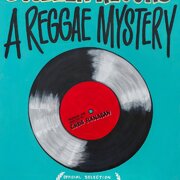WOMEX Film's Sana Rizvi caught up with director, Chris Flanagan to talk to him about his work, the process, his record obsession and what he is jamming to right now.
Ten years ago, artist and vinyl fanatic Chris Flanagan unearthed a mysterious thrift store record that changed his whole life. Haunted by the voice of a woman on the record, listed only as 'Shella Record' he dropped everything and began a quest to find out who she was and what happened to her. From Toronto, to Kingston Jamaica and all across America following in her footsteps from New York to Los Angeles, enlisting the help of psychics, private investigators and a ghost hunter, Chris embarks on an increasingly desperate search……. Does he finally find her?
Watch Chris Flanagan’s unreleased film Shella Record- A Reggae Mystery, a whimsical meditation on the power of music and obsession, blurring fact and fiction that is part of the WOMEX 2019 Film Library.
The Film Library, at Opus 1 in Tampere Hall is a physical space that features an extended selection of films highlighting new projects, collaborations including previews of unreleased films such as ‘Shella Record- A Reggae Mystery’. Films in the library are accessible on-demand to accredited WOMEX delegates at any time convenient to them between 10:00-18:00 from Thursday 24 October through Saturday 26 October 2019.
Chris can you take us back to the start of this insanely incredible 10-year journey?
Chris Flanagan : When I stumbled across a discarded thrift shop record in rural Ontario 10 years ago, I had no idea of the journey it would take me on. The never-ending quest to discover sounds, voices and stories I've never heard before is what keeps me hitting flea markets at dawn, keeping some strange company and spending far more than I can afford on pieces of round black plastic. "Jamaican Fruit of African Roots" by Shella Record is one of those 1 in 10,000 songs that leave you utterly floored. As an artist, obsessive record collector and DJ, I have always searched for ways to connect these passions within my visual arts practice. Haunted by her unique voice, I knew I needed to drop everything and find out anything I could about this mystery diva 'Shella Record.'
And then your adventure began, and you decided to film it?
Chris Flanagan : I had never made a documentary before and bought a cheap camera on Craigslist to document my search in Toronto. The name Shella Record was ungoogleable-but surely with a voice like that she must have made other recordings! Was she Canadian, American, Jamaican, English, alive or dead? It could have been a very short and simple search, but as I began to dig, I was faced with intrigue and confusion at every turn, making me even more determined to keep searching. Hitting dead ends in Toronto, I went on a local Reggae radio show playing the song on air hoping that someone might recognize Shella's voice and call in. Off-air a mysterious older gentleman with a Jamaican accent revealed that Shella Record was, in fact, a misprint of "Sheila Rickards" a Jamaican Jazz singer from the 1960s. Could it really be the same person? I had to go to Jamaica to find out. What followed was a search spanning more than 5 years across Jamaica, New York and Los Angeles, New Orleans and Mississippi.
How did you fund the film and get support for this arduous journey you embarked on?
Chris Flanagan : This process was entirely self-funded; friends and my long-suffering partner Emily grabbed cameras and sound recorders and accompanied me across the world as I chased the next clue. Friend and mentor, director Matthew Bate (‘Shut Up Little Man’, ‘Sam Klemke's Time Machine’) gave invaluable ongoing input, advice and support as did artist and documentary filmmaker Sameer Farooq (‘Silk Road of Pop’). Eventually, I was able to secure grants from the Ontario Arts Council and the Canada Council for the Arts for a shoestring post-production budget to bring some paid professionals on board.
Could you walk us through some of the artistic elements as well as the aesthetics of the film?
Chris Flanagan : It was always clear that this was a mystery story, and I played up elements of that intrigue and dark noir-ish aesthetic throughout. These themes were strengthened through my creative recreations with actors that were used to give drama to an imagined scenario, recreate a scene I was unable to film or to seamlessly blend in with archival footage. My background as an artist plays an essential role throughout the film through the integration of intricate models and silhouette puppets of me and several other characters central to the film. They are whimsical and playful at times but can also be haunting and powerful as when engineer Newton Williams describes his anguish when his studio in Kingston Jamaica burned down.
Chris you also run Shella Records, a label dedicated to reissuing lost Canadian Reggae music in partnership with the original artists. Could you tell us about the music in the documentary?
Chris Flanagan : As the documentary centers on my obsession with a song and a voice, ‘Jamaican Fruit of African Roots’ features prominently throughout, both in its original form and in the dub remixes. The music is a fundamental part of this documentary, and the score includes a mix of some of the greatest Reggae and Dub songs of the 70s along with original compositions. I have been extremely fortunate to license some of the highlights of the catalogue of Producer Bunny Lee - an essential character in the story who became a friend through the process. Songs feature such greats as Horace Andy, King Tubby, Prince Far-I, Cornell Campbell, Roots Radics and more. I composed incidental music for the documentary using samples from vinyl records as the starting point and augmented with live instruments, including a xylophone I borrowed from the Toronto Public Library.
Right at the start of the film you acknowledge your white privilege when it came to making the film. How did you go about dealing with the awareness you had of a sensitive yet important topic?
Chris Flanagan : Throughout the making of this film, I have always grappled with questions about my role in this story as a white filmmaker obsessed with a Jamaican woman who sings a song about slavery. This is something that was essential to address early within the film itself, and the story has always been more about MY search for and obsession with the mystery singer rather than an attempt to tell HER story. I consciously sought out collaborators of Jamaican/Caribbean descent in key creative roles in this film about an outsider's journey within Reggae and Jamaican culture. This resulted in a process, which necessitated important conversations, extending the production and post-production periods, ultimately resulting in a much more meaningful and honest film.
My primary creative collaborator was editor Sonia Godding Togobo who had a significant role in the shape of the finished film. Also, I had cultural consultation from educator and activist Robin Akimbo, script editing by writer and spoken word artist Kevin Reigh, studio camera and motion graphics were by Graeme Mathieson, and finally Executive Producer Herbie Miller of the Jamaica Music Museum in Kingston provided invaluable insight.
What is your plate at the moment and tell us what are you listening to right now?
Chris Flanagan : In terms of film I'm working on a series of shorts about Toronto's buried Reggae history with my collaborator Graeme Mathieson and the National Film Board of Canada. There are some really important Reggae artists living in Canada whose stories have been largely overlooked and I'm really excited to help share them.
As for music, I have a couple more reissue projects I'm working on for my label
Shella Records. It takes time because I try and track down the original artists and master tapes and often because they never really had a lot of success the first time around, people have dropped out of the music business and the master tapes have been discarded or damaged.
I'm making new discoveries every day when I go out record digging. Toronto is such a fantastic city to find records if you're into eclectic music because it's one of the most diverse cities on the planet. Obviously Reggae is my first love but it's not hard to find records from Trinidad, Guyana and all across the Caribbean here in the city. I upload tracks and mixes to my Soundcloud page, and I've started to upload some of the records that you can't find online anywhere to my YouTube Channel.
I'm also really looking forward to the release of a rediscovered John Coltrane's soundtrack "Blue World" that was commissioned for the National Film Board of Canada in 1964 for a feature film but was never released. It was recorded just before "Love Supreme" so it promises to be a deep one!
Why should delegates at WOMEX watch the film and what do young hope they take away from it?
Chris Flanagan : ‘Shella Record--A Reggae Mystery’ is a playful adventure and mystery that will suck you in and take you on an unexpected journey along with me. It is an unconventional documentary, which integrates my 15 years as a sculptor and installation artist through creative imaginings and film recreations. It is a deep dive into the remarkable story about the best song you never heard. I hope that at least some of my enthusiasm and passion for this music will rub off on the viewer.
Interviewed & Written by Sana Rizvi
Excerpts taken from Chris Flanagan’s director notes on www.shellarecordmystery.com
article posted by:Sana Rizvi, Piranha Arts




